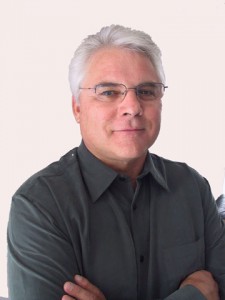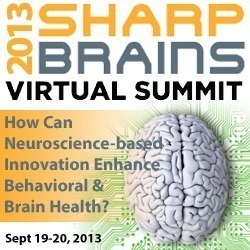John Todor: To reach brain potential, we need less individual “improv”

John I. Todor
What is your current job title and organization, and what excites you the most about working there?
As the Co-Founder of Living55Plus.com, I enjoy the opportunity to curate the new research showing how lifestyle impacts mental, physical and social well-being, and to help build a community to share everyday experiences.
Please tell us about your interest in applied brain science. What areas are you most interested in? What motivated you to pursue work in your field?
My Ph.D. is in Educational Psychology, followed by post-doctoral work in cognitive science and clinical neuropsychology. I am most interested in uncovering how lifestyles, what we do day in and out and how we do it, including our jobs, contribute to well-being. How can we develop and apply methods to help people adopt healthy lifestyles and replace toxic behaviors?
My motivation to pursue this work is two-fold. One is making sure that extended lifespans will be spent in a state of optimal well-being rather than decline. Two, my experience with middle-aged and older executives indicate that new discoveries are not enough. We need to develop effective methodologies for widespread adoption of positive lifestyles. We are now in a state of “improv” mostly at an individual level. This is a huge problem in a world with an aging population and fast-changing dynamics where well-being depends on enhanced adaptive potential.
What is one important thing you are working on now, and where can people learn more about it?
Complete well-being is a state of optimal mental, physical and social functioning, and we are discovering that the three are highly interdependent. People can learn more about our approach by visiting www.Living55Plus.com.
What are 1–2 key things you’d like every person to understand regarding his/her own brain and mind that you think is commonly misrepresented or not addressed in the popular media?
The notion of health is most often approached as an exercise program or weight loss diet that requires will power and hard work. Certainly, motivation is critical and requires changing old routines and habits. However, many of the positive and proactive changes in behavior or lifestyle are self-rewarding, cognitively and emotionally, as well as stimulating positive brain health. The key is to start with changes that are both meaningful and rewarding and to develop a social network to support an ongoing journey that is not just healthy but rewarding.
Where do you see clear “low-hanging fruit” to enhance behavioral and brain health based on neuroscience and innovation?
Identifying conventional behaviors or lifestyles that contribute to declines in health and well-being and applying not only applied brain science but also positive psychology and knowledge of social relationships to change them for the better. The “low-hanging fruit” is in stimulating both offline communities and online social networks to become engaged in positive change.
What would you like the 2013 SharpBrains Virtual Summit to accomplish?
As with past Summits, bring to the forefront the contemporary research on brain science and discussion of leading efforts to apply the research. Additionally, to facilitate the interaction between professionals taking diverse approaches to the challenges. These interviews are an excellent start.
Finally, what do you do to stay sharp?
I do mindful meditation every day and try engaging in activities that push me out of my comfort zone on a regular basis. Last spring I took singing lessons, which was an uncomfortable but stimulating activity for a lifelong non-singer.
Currently, I am also trying out ways to “eat less and enjoy it more,” a mindful endeavor to not fall back into old habits but make healthy and enjoyable changes in my own eating habits.
 —This conversation is part of a new interview series with Speakers and Participants in the upcoming 2013 SharpBrains Virtual Summit (September 19–20th). You can register with a 20% discount using promotional code: sharp2020
—This conversation is part of a new interview series with Speakers and Participants in the upcoming 2013 SharpBrains Virtual Summit (September 19–20th). You can register with a 20% discount using promotional code: sharp2020


